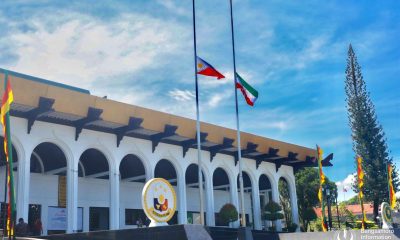Headline
PH sets new conditions for foreigners’ entry

MANILA – The government has set new conditions for foreigners who are allowed to enter the Philippines despite the travel restrictions to curb the spread of the new variant of the coronavirus disease 2019 (Covid-19), Malacañang said on Friday.
In a press statement, Presidential Spokesperson Harry Roque said foreign travelers who wish to visit the Philippines are required to pre-book hotels for quarantine purposes and undergo a reverse transcription-polymerase chain reaction (RT-PCR) test six days after their arrival.
“These foreign nationals should also have pre-booked accommodation for at least seven nights in an accredited quarantine hotel or facility. They shall also be subject to Covid-19 testing at the quarantine hotel or facility on the sixth day from the date of their arrival,” Roque said.
He said the conditions were included in Resolution 97 approved by the Inter-Agency Task Force for the Management of Emerging Infectious Diseases (IATF-EID) on Thursday.
Roque, also acting as IATF-EID spokesperson, said the new rules for foreign travelers will take effect on February 1.
“The entry of these foreign nationals will be subject to the maximum capacity of inbound passengers at the port and date of entry,” he said.
He said the Bureau of Immigration has been directed to formulate the guidelines for the implementation of the new conditions for foreigners who will go to the country.
On Jan. 21, the IATF-EID approved Resolution 95 which allows foreigners with valid visas, including personnel of accredited international organizations, and spouses and minor children of Filipino citizens, to visit the Philippines.
Roque reiterated that arriving foreigners should have “valid and existing visas at the time of entry.”
The Philippines has imposed a travel ban on more than 30 countries with confirmed cases of B.1.1.7 SARS-CoV-2 variant or the United Kingdom (UK) variant.
It currently prohibits the entry of foreign travelers from the UK, Denmark, Ireland, Japan, Australia, Israel, the Netherlands, China, Hong Kong, Switzerland, France, Germany, Iceland, Italy, Lebanon, Singapore, Sweden, South Korea, South Africa, Canada, Spain, the United States, Portugal, India, Finland, Norway, Jordan, Brazil, Australia, Pakistan, Jamaica, Luxembourg, Oman, United Arab Emirates, and the Czech Republic.
The new variant is believed to be nearly 70 percent more transmissible than the original Covid-19 variant. However, there is no evidence yet that it is deadlier than the previous coronavirus variant.
On Monday, the Department of Health confirmed local transmission of the UK variant in Bontoc, Mountain Province.



























